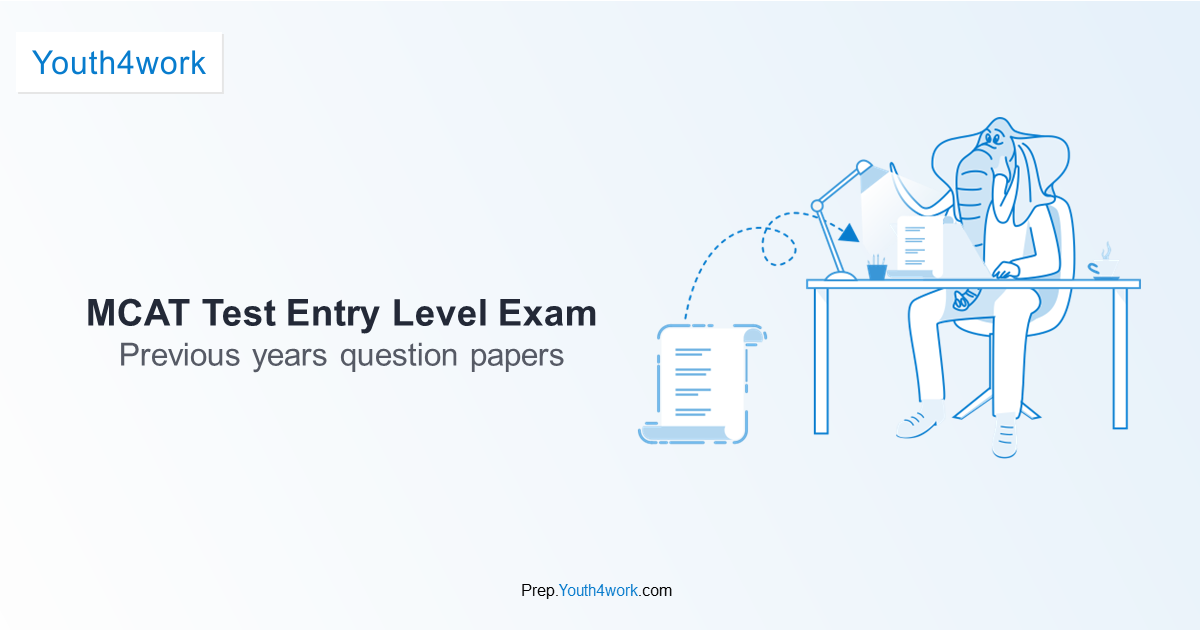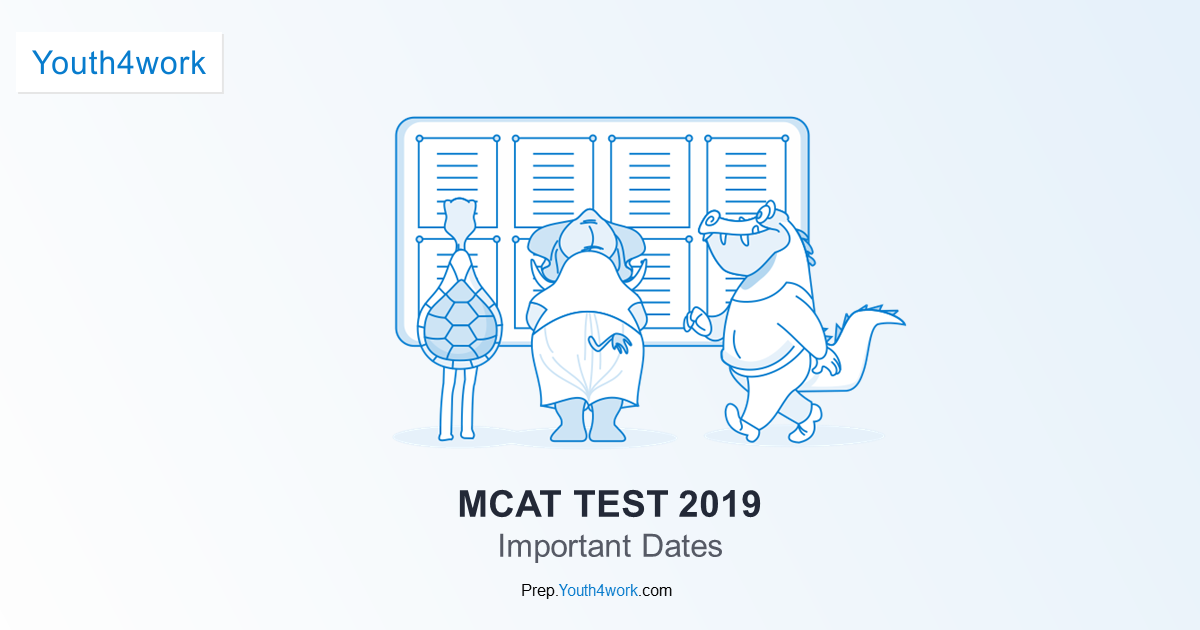MCAT Exam Pattern and Details
MCAT (Medical College Admission Test) is a computer-based examination that started in the year 1928. The examination is administrated by the American Association of Medical Colleges. The purpose is to provide admissions to medical students in the US, Australia, Canada, and the Caribbean Islands. The exam tests the physical sciences, biological sciences, and verbal reasoning. It invites only undergraduate students from an MBBS degree. The MCAT exam tests candidates on the skills and knowledge that medical educators, physicians, medical students, and residents have identified as key prerequisites for success in medical school and practicing medicine.
Eligibility | Exam Pattern | Syllabus | Tips and Tricks | Take Free Mock Test
मुख्य हाइलाइट
Mcat का

ELIGIBILITY CRITERIA:
Undergraduate Degree in MBBS

Exam Duration:
7.5 Hours

Sections
4

EXAM LEVEL
INTERNATIONAL

Registration Dates:
Solely Depends on the Nation you are opting for

Registration Fees:
1. Gold Zone(29 days before exam) - $315
2. Silver Zone(15 days before exam) - $315
3. Bronze Zone(8 days before exam)- $370
MCAT Exam: Eligibility Criteria
-
Must possess a degree in MBBS.
MCAT Exam Pattern:
The exam timing is actually 7 hours 30 mins with breaks into a total of 6 hours 15 minutes for the test. It is a computer-based examination with 221 multiple-choice questions. It consists of the following sections:
-
Biological and Biochemical Foundations of Living Systems
-
Chemical and Physical Foundations of Biological Systems
-
Psychological, Social, and Biological Foundations of Behaviour
-
Critical Analysis and Reasoning Skills
There is a negative marking for incorrect answers. The MCAT score lies on a range of 472-528 and the Sectional score range is between 118-132.
MCAT Exam: Syllabus
-
Biological and Biochemical Foundations of Living Systems-
-
bioenergetics and fuel metabolism
-
cells/molecule assembly in single/multi-cell organisms
-
protein structures and amino acids as building blocks
-
genetic transmission of information: gene to protein
-
heredity and the processes that enhance genetic diversity
-
prokaryotes and viruses: structure, physiology, and genetics
-
cell division
-
nervous and endocrine systems
-
organ systems: functions and structure
-
-
Chemical and Physical Foundations of Biological Systems-
-
work, energy, forces, equilibrium in living systems
-
the role of fluids in blood circulation and gas exchange
-
electrochemistry
-
interaction of light and sound with matter
-
nuclear decay and chemical behavior of atoms
-
water: nature and solutions
-
molecules and the interaction among them
-
the concept of purification
-
function and structure of biological molecules
-
kinetics and thermodynamic principles
-
-
Psychological, Social, and Biological Foundations of Behaviour
-
environment sensing and understanding
-
response to the world
-
causes of behavioral change
-
effects of social activity on human behavior
-
distinctive behaviors
-
identity & the concept of self
-
the social line of thought and interactions
-
social imbalance
-
understanding of the social fabric
-
demographic systems
-
-
Critical Analysis and Reasoning Skills-
-
Test comprehension,
-
analysis, and reasoning skills; Include content from ethics, philosophy,
-
studies of diverse cultures,
-
population health,
-
social sciences and humanities disciplines
-
economics/history/geography
-
anthropology
-
linguistics
-
psychology and sociology
-
archaeology
-
political science
-
Tips and Tricks for the MCAT Exam:
-
Candidates must attempt questions carefully, as there is negative marking as well.
-
AAMC provides video lectures and online tutorials for the exam, the candidate should go through the preparation material provided by them.
-
The books are recommended for the preparation by AAMC on their official website.
-
Candidates must revise their concepts thoroughly.
-
Candidates must have knowledge of medical terms.
-
Take online mock tests to know your strengths and weaknesses.
-
Candidates must practice placement papers and mock tests to prepare well.
Youth4work Prep Tests
Online practice tests for competitive exams – are very unique and popular among aspirants. Aspirants can take self-designed mock-tests as well as practice for sections and topics separately. Youth4work’s unique and proprietary technology is helping lakhs of aspirants to reveal personal details on what are the strength areas of aspirants for any exam and also suggest how they can improve the performance.
Following are interesting insights from over 2 lakh question attempts on MCAT practice paper on Youth4work. Every aspirant is rated on a Rating Scale. The ratings of the aspirants change with every question.
डाउनलोड
केस स्टडी, नोट्स, पिछले साल पेपर
चर्चा मंच
समान प्रतिभा वाले युवक/युवती इस प्रश्न का शीघ्र उत्तर देंगे।








